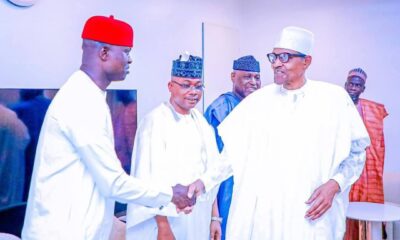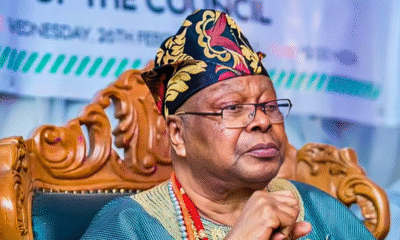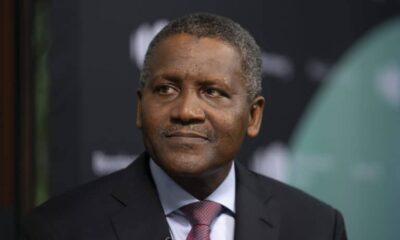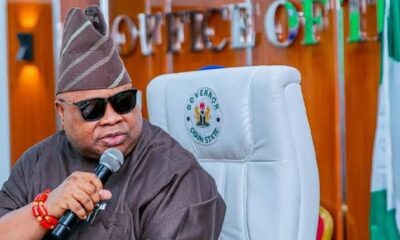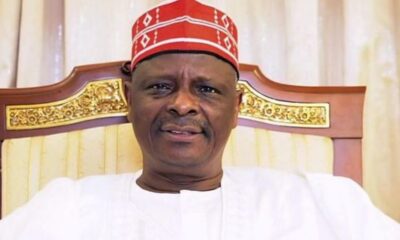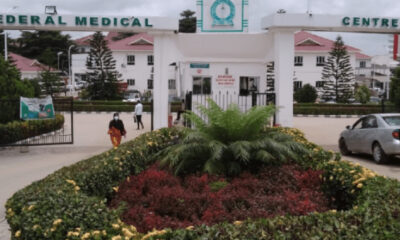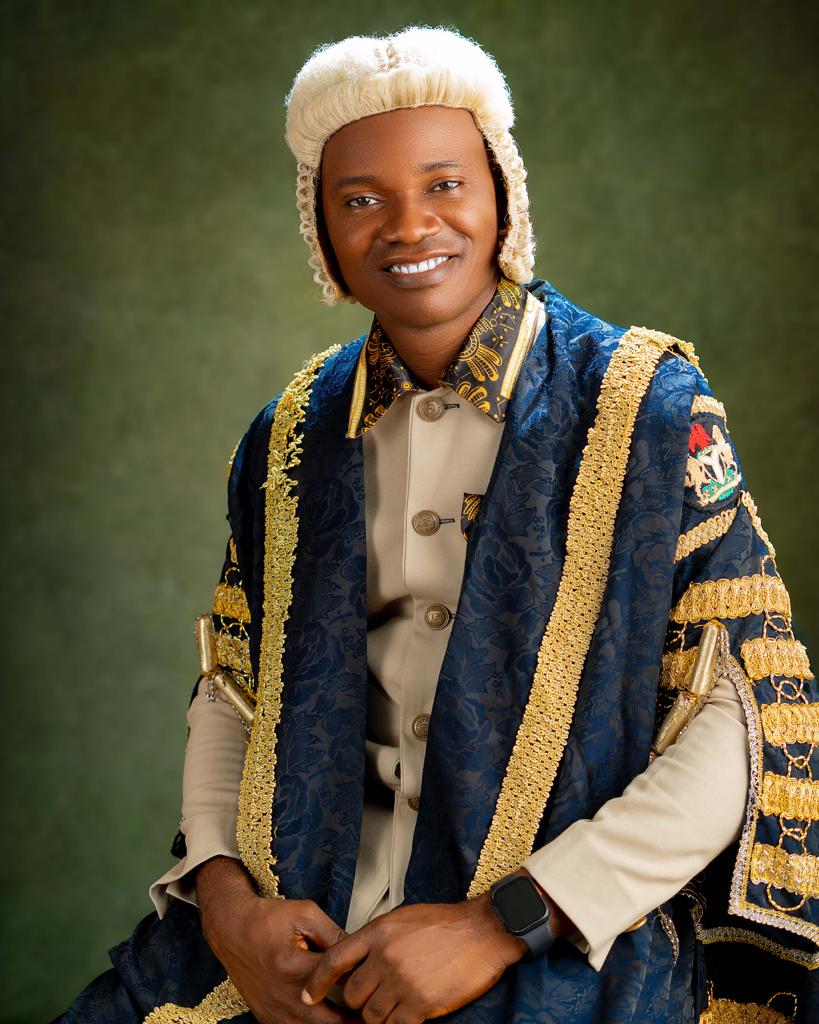EDITORIAL
EDITORIAL: Mid-Term – Nwifuru’s People’s Charter of Needs Agenda Needs Help

Two years into the administration of Governor Francis Ogbonna Nwifuru, Ebonyi State finds itself at a critical inflection point. The government’s “People’s Charter of Needs”—a flagship policy doctrine promising inclusive development, social welfare, and transformative infrastructure—has undeniably brought significant accomplishments. Yet, as the midterm milestone is marked, the time is ripe to ask: is the “People’s Charter of Needs” living up to its fullest potential? Or does it, in fact, need urgent help?
This editorial aims to assess the trajectory of this administration through a dual lens—celebration and scrutiny. The last 24 months have seen an explosion of activity across nearly every sector. From education and health to agriculture and human capital development, Governor Nwifuru’s government has embraced governance with visible energy. But there remains a vast distance between activity and impact, between spending and sustainability, between projects and policy cohesion. And that is where help is needed—help in refining, recalibrating, and rethinking aspects of the People’s Charter of Needs.
No one can sincerely deny that Governor Nwifuru has delivered visible gains. In education, the scale of intervention is impressive: hundreds of scholarships to foreign and local universities, increased subvention to Ebonyi State University, tuition fee reductions, better staff salaries, and massive infrastructural investments across tertiary and basic education levels. These are achievements that go beyond the rhetoric of previous governments. Similarly, in healthcare, the administration’s bold steps—from recruiting health personnel to equipping hospitals with MRI machines, expanding primary healthcare centres, and distributing ambulances—signal a government aware of its duty to protect lives.
The agriculture sector, long neglected by successive governments, is seeing a renaissance under this administration. Fertilizer production, the revival of the Nkaleke hatchery, distribution of agricultural inputs, and mechanization efforts have reinvigorated the grassroots farming economy. Equally commendable is the bold stride to enlist Ebonyi into national agro-processing initiatives and climate change policy frameworks.
From the civil service to the housing sector, from water schemes to youth empowerment, from road construction to internal security, there are strong indicators that this administration is not just ticking boxes but trying to address long-standing needs. Indeed, the delivery of over 500 kilometres of roads, 140 housing units for displaced persons, recruitment into civil service, and large-scale distribution of palliatives paint a picture of action-oriented governance.
But the Charter Needs Help: Where the Cracks Appear
Yet, for all the good, the “People’s Charter of Needs” shows worrying signs of fatigue and fragmentation. For a policy designed to reflect the people’s actual needs, its current implementation sometimes seems more top-down than bottom-up. The participatory ethos expected of a needs-based charter seems drowned in the noise of over-centralization and elite-driven programming.
Let’s start with project sustainability. How many of the monumental construction projects—hostels, faculty buildings, bridges, smart city infrastructure—are tied to revenue-generation models that will sustain them long-term? Without a clearly defined maintenance and operationalization roadmap, Ebonyi risks falling into the same trap as other states where mega-projects become white elephants due to poor planning and lack of continuity.
Human capital development, though rightly emphasized, is still hindered by bureaucratic bottlenecks and poor follow-up. The various empowerment programs—ranging from ₦180,000 disbursements to ₦2 million for select youths—risk being perceived as ad-hoc or politically motivated if clear selection criteria, long-term monitoring, and feedback mechanisms are not in place.
Even in healthcare, the establishment of facilities and procurement of equipment, though commendable, must be matched with medical workforce training, retention, and digital health integration. A hospital with sophisticated MRI machines means little without a consistent power supply, maintenance, or skilled technicians.
The Ease of Doing Business agenda, while outlined as a key pillar, remains largely anecdotal. Entrepreneurs still struggle with informal taxation, lack of investor protection, and difficulty accessing credit. Creating a business-friendly climate requires more than proclamations—it demands systemic reforms, enforcement of commercial laws, and a strong judiciary.
Furthermore, climate resilience and environmental sustainability, which should be a core feature of any 21st-century development plan, receive little visible attention in the People’s Charter. Ebonyi’s heavy investment in roads and infrastructure must be accompanied by environmental impact assessments, flood control, and green urban planning.
A core tenet of any people-centered policy is the institutionalization of transparency and feedback loops. Governor Nwifuru’s government, despite its enthusiasm and work ethic, must embrace structured civic engagement and routine audits. There is a noticeable absence of accessible public reports on spending breakdowns, project timelines, or community-level participation in planning.
Without strong data transparency, the Charter becomes a one-way document—decreed from above, rather than shaped by the voices below. Help is needed here—not in terms of funding, but in orientation. There must be more townhall meetings, independent assessments, civil society involvement, and grassroots audits to track actual progress.
Towards a Stronger Second Half
Governor Nwifuru deserves recognition for running a government that does not sleep on the job. His achievements, especially compared to the lethargy of some peers, are numerous and inspiring. But the measure of a great leader lies not in how much is done, but in how sustainably, inclusively, and impactfully it is done.
As the administration enters the second half of its term, the call to action is clear: Refine the Charter. Engage the people more. Institutionalize transparency. Close the loop between projects and people. Align vision with sustainability.
The People’s Charter of Needs must not become just another high-sounding blueprint lost in the bureaucracy of governance. It must evolve into a living framework, constantly updated by the needs, aspirations, and feedback of those it claims to serve.
Governor Nwifuru has laid a robust foundation. What remains is to strengthen the pillars, reinforce the roofing, and ensure that no one—regardless of status, ward, or background—is left outside the house of progress.
For the sake of Ebonyi State, the time to help the Charter help the people is now.
Discover more from Asiwaju Media
Subscribe to get the latest posts sent to your email.
-
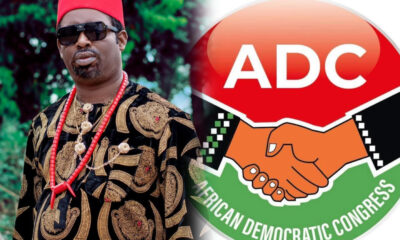
 POLITICS5 days ago
POLITICS5 days agoADC Chieftain Alleges Plot by APC to Hijack Party in Ebonyi, Vows Resistance
-

 ENTERTAINMENT4 days ago
ENTERTAINMENT4 days agoIyabo Ojo Addresses Police Invitation, Threats And Fire Outbreak, Clarifies Position On Mohbad’s Death
-

 TECH7 days ago
TECH7 days agoStep-by-Step Guide on How to Generate an e-affidavit for Change of Name, Loss of SIM, Declaration of Age and General Declarations
-
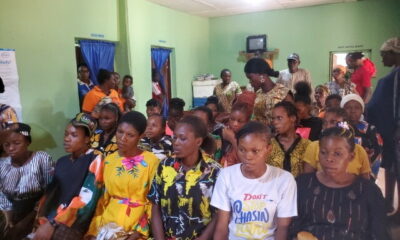
 NEWS3 days ago
NEWS3 days agoFoundation Conducts Outreach in Amaenyima, Settles Hospital Bills and Support
-
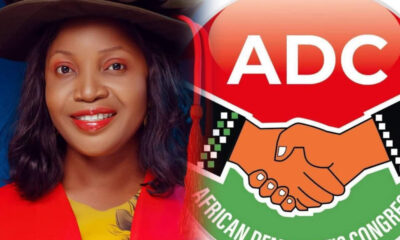
 POLITICS5 days ago
POLITICS5 days agoADC Confirms Jennifer Adibie as Ebonyi State Chairperson
-

 NEWS7 days ago
NEWS7 days ago“We Need Real Protection, Not Just Condoms” — Akure Sex Workers Mourn Colleague
-

 FACT-CHECKS/INVESTIGATION3 days ago
FACT-CHECKS/INVESTIGATION3 days agoHow Federal Lawmaker, Ogah Snatches Village Land in Ebonyi
-

 NEWS3 days ago
NEWS3 days agoDeji Adeyanju Rewards Top Law School Graduates With N8m Cash Gift
-

 NEWS4 days ago
NEWS4 days ago95 Female Corps Members Receive Free Entrepreneurial Training In Lagos
-
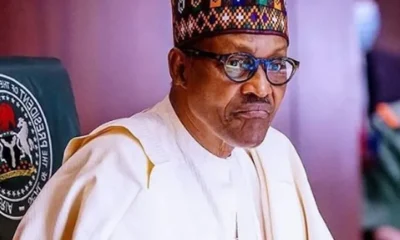
 EDITORIAL1 day ago
EDITORIAL1 day agoThe Life and Legacy of Muhammadu Buhari (1942–2025)
-
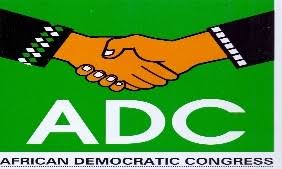
 POLITICS6 days ago
POLITICS6 days agoADC Ebonyi Summons Emergency State Executive Council Meeting
-
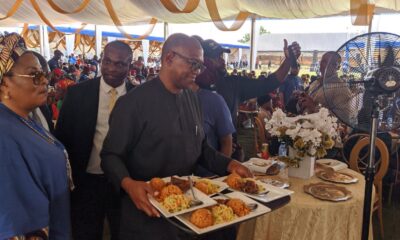
 NEWS4 days ago
NEWS4 days agoPeter Obi Spotted Serving Food At Public Event

